Stinky dog farts are sometimes a thing of legend. You know your dog has a gassy problem when cuddling on the couch turns into a test of how long you can hold your breath. Your four-legged family member can let them rip with more stench than any person you know. While all dogs fart on occasion, some have the unnerving ability to pass gas that can only be described as deadly.
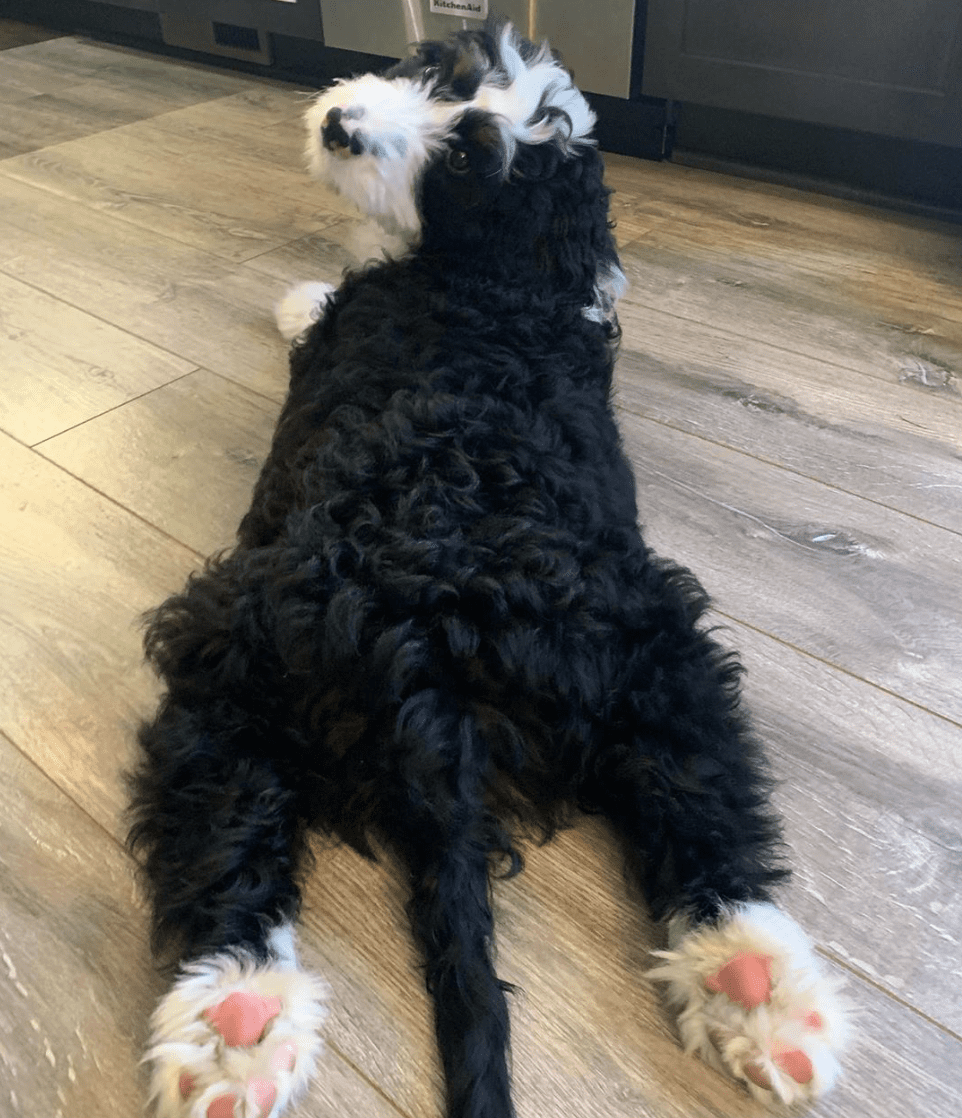
Farting is completely natural and sometimes even good for your dog’s health, but poots that make you gasp for fresh air are a sign something isn’t right with your dog’s digestion. Smelly dog farts can’t actually hurt the person who’s forced to smell them, but the underlying issue could be affecting more than your home’s air quality. Before we get into ways to stop the smell, consider possible reasons your dog’s fart are especially bad.
Why Dogs Fart
According to the AKC, dogs develop gas for the same reasons their owners do.
“A change in diet, a food that doesn’t agree with them, and gastrointestinal illness can all lead to imbalances in the microflora in your dog’s stomach and small intestines. These organisms are responsible for the excess gas and subsequent farts that are making you and your dog miserable.”
Eating too much fiber and ingesting foreign objects can both be reasons why a dog is farting more than normal. Certain dogs also tend to swallow a lot of air when they eat and drink, especially short-nosed brachycephalic breeds like Pugs and Boston terriers. This additional swallowed air has to come out some way.
A sudden change in their diet can also upset a dog’s stomach, and excessive farting may be a symptom of food allergies. Before you can successfully put an end to the stink, you’ll need to determine whether the issue is related to a medical problem or nutritional lapse. If your dog isn’t interested in trying the new food you decide on, use this special trick.
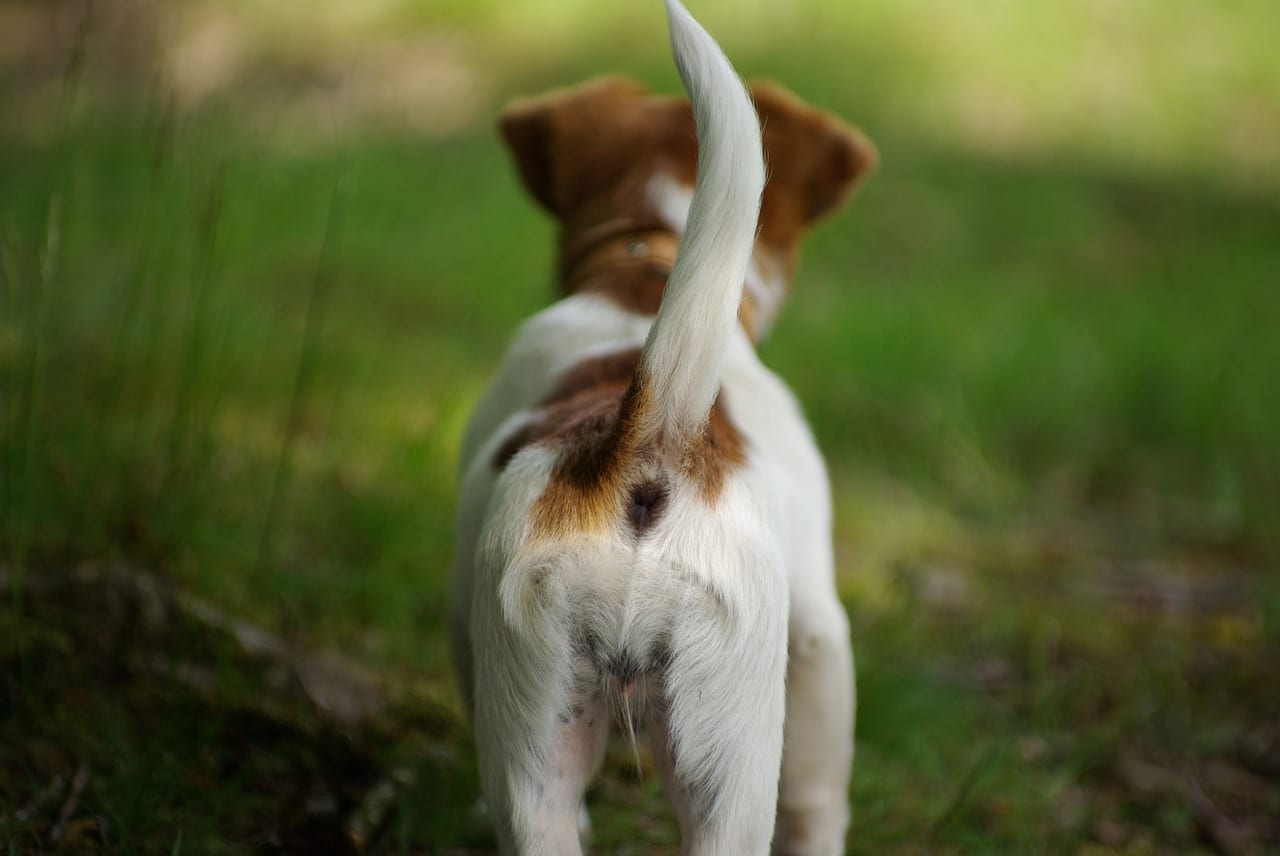
How to Help a Dog Fart Less
Your strategy for helping relieve your dog’s stinky dog farts will largely depend on the underlying cause. It might not be necessary to try all these suggestions, but if your dog seems otherwise healthy and you haven’t been able to pinpoint anything specific that’s causing the smell, it won’t hurt to initiate a full-on plan of attack. Here are a few things you can do.
1. Switch Dog Foods
Before you stress over the possibility of your dog being sick, realize the food they eat is directly related to the gas they produce. VetWest Animal Hospital writes,
“Most cases of chronic flatulence are caused by a diet that is poorly digested by the dog. These poorly digestible diets cause excessive fermentation in the colon and subsequent gas formation.”
Commercial dog foods aren’t always formulated with a dog’s healthy digestive system in mind. It’s up to you to read the list of ingredients and determine if it’s helping or hurting your dog’s health. The extra food your dog earns through begging could also be an issue. Dogs aren’t built to properly digest most human food, and regularly eating table scraps could be the simple reason why your dog farts. High-fat diets are known for causing excess gas, and foods like beans, dairy, and peas aren’t good either.
Try switching to a better quality dog food to test if it affects your dog’s gas. When you make the switch, do it gradually. Your dog’s stomach and intestines need time to adjust to the dietary change.
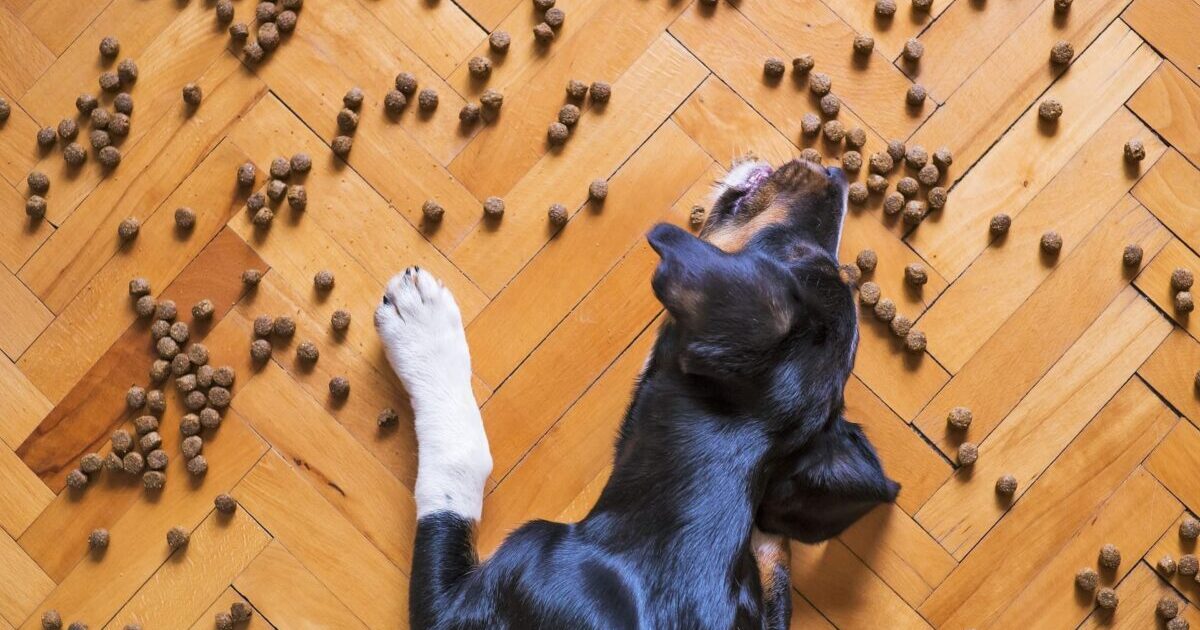
2. Make Them Eat Slower
Along with what your dog eats, how they eat could also be contributing to their farting problem. Dogs that scarf down their food in seconds also swallow a lot of air. The extra air passes through the digestive system and puffs out the other end in the form of flatulence. You need to slow your dog’s roll, and the best way to do that is with a slow feed dog bowl. These bowls have maze-like ridges on the bottom that force chowhounds to slow down.
PetMD also reports respiratory diseases can cause dogs to take in extra air, and AKC lists brachycephalic breeds like bulldogs and pugs as being more likely to swallow air while eating. Dogs might also take in excess air because they’re eating near a competing dog and feel the need to hurry up and eat before their food is stolen. Moving them to a private area during dinner will help them relax and eat without swallowing too much air.
3. Get Moving
Overweight dogs that rarely exercise are more at risk of developing chronic gas than the average active pup. According to PetWave, regular exercise helps stimulate the gastrointestinal tract. When digested food moves through the system smoothly, noxious gas is less of a problem. Going on walks also encourages dogs to poop, and going to the bathroom gives them the chance to expel those nasty odors somewhere other than your living room.
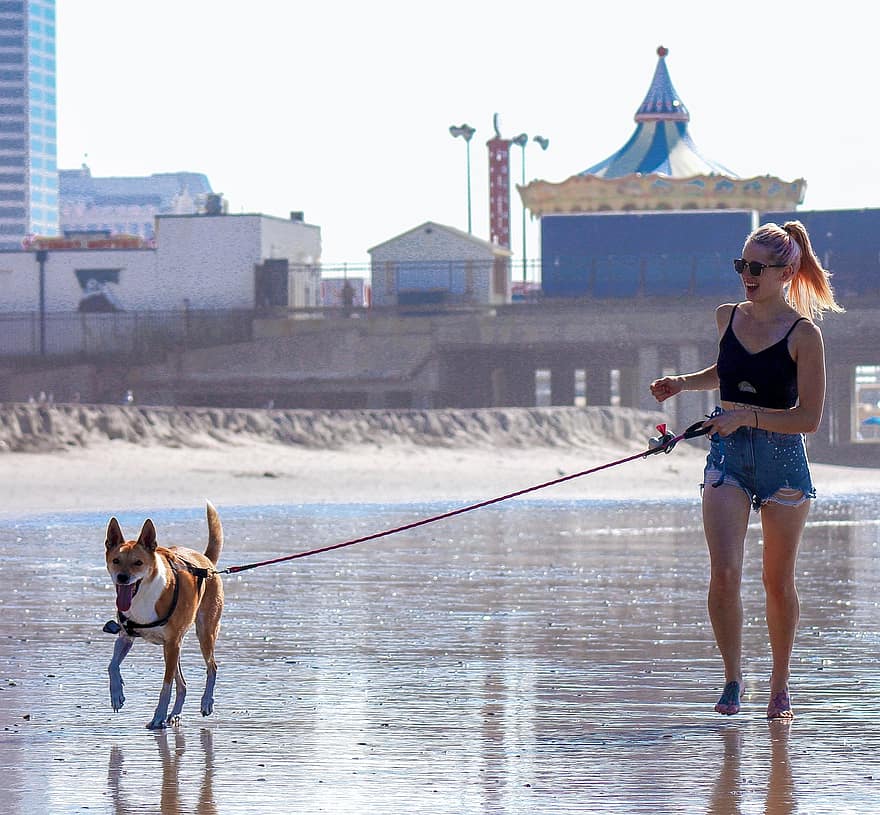
4. Feed Multiple Meals Per Day
Feeding a dog one or two large meals a day is okay, but it isn’t what’s best for their intestinal tract. With small meals, there’s less food sitting in the stomach that can ferment and turn into gas. This prevents there from being a build-up of gas that eventually turns into an expulsion of toxic fumes aka stinky dog farts. Eating smaller amounts of food is also easier on digestion for dogs with sensitive stomachs. It won’t change the amount of food your dog eats, it only spreads out calorie consumption to be more manageable.
5. Avoid Handing Out Table Scraps
There’s a reason dog food comes separately from our own. Foods high in fat and sugar that we humans enjoy (probably too often) can upset a dog’s tummy. Most dogs are lactose intolerant as well, so don’t go tossing them cheese or cakes. You should also avoid letting them have steamed vegetables like broccoli or cauliflower.
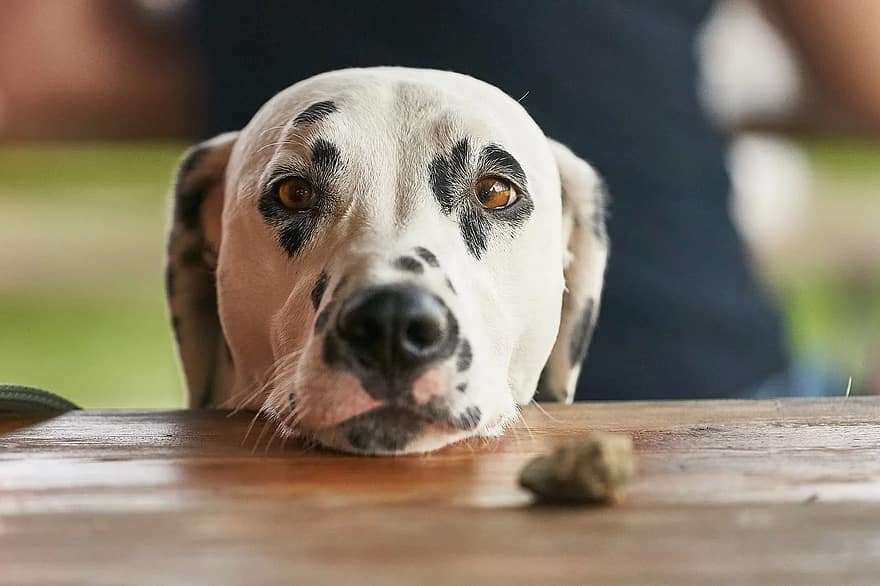
6. Try Dietary Supplements
A study (admittedly of humans) found that charcoal and zinc acetate reduced the fart smell. Another study found that Yucca schidigera reduced hydrogen sulfide concentrations that make dog poop extra smelly. All of these are available as dietary supplements, but consult your vet before you start giving them to your dog. They might also recommend probiotic powders or antacids.
7. Visit the Vet
If nothing seems to be working, it’s time to consider the possibility your dog has a medical condition. Excessive gas could be a symptom of any of the following issues:
- Canine colitis
- Irritable bowel syndrome (IBS)
- Intestinal parasites
- Inflammatory bowel disease
- Cancer
- Pancreatitis
But don’t freak out just yet. The only way to confirm the theory is to visit the vet. Don’t hold back when describing the severity of your dog’s smell and the frequency of their farts. Whether your dog has a GI illness, allergies, pancreas function failure, or parasites, a vet will be able to give you a diagnosis and suggest appropriate treatment.
 Toledo, United States.
Toledo, United States.